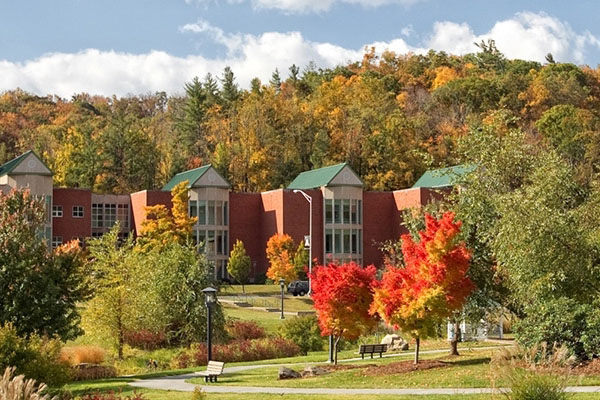BOONE, N.C. — Nearly 40 Appalachian State University faculty have come together to share their expertise and develop research clusters around topics related to COVID-19.
“Appalachian’s focus on applied research and its history as a rural-serving institution of higher learning position us to identify and solve issues presented by this extraordinary time,” said Appalachian Chancellor Sheri Everts.
Dr. Heather Hulburt Norris, Appalachian’s interim provost and executive vice chancellor, said, “The expertise of our faculty can be utilized to explore and address many aspects of the novel coronavirus and its effects. I am confident their work will be applicable to many areas to make positive differences for our community and beyond.”
Faculty are developing interdisciplinary teams around the following research areas:
- Modeling that incorporates geographic, environmental and socioeconomic variability in the region.
- Health disparities, vulnerability and resilience.
- Behavioral and community response and communication.
- Pathogen/environment relations, disease spread and surveillance.
- Economic impact on the region.
“Our faculty were eager to become involved in meaningful interdisciplinary work and to form these research teams,” Norris said. “I am inspired by the creative energy they bring together, and I’m looking forward to learning what they discover.”
The effort is being led by Appalachian’s Dr. Ece Karatan, vice provost for research in the university’s Office of Research.
“The work is at the very beginning stages, but an overarching theme connecting these research clusters is generation of information, knowledge and solutions to address the impacts of COVID-19 on our community and region,” Karatan said.
Currently, faculty in the research clusters are holding meetings to formulate and refine research questions.
Some topics faculty plan to address:
- Economic effects of COVID-19 on the regional economy.
- Predicting vulnerability/future hotspots and populations with high death rates.
- Homelessness and substance use as factors related to vulnerability and access to resources.
- Individuals who follow recommended best practices and those who do not, and the health differentials among these behaviors.
- Social and political environments of vulnerable population groups.
- How to support rural, socially vulnerable community members living alone.
“With no comparable circumstances in recent history, we are only beginning to see the effects the novel coronavirus will have on our region, our state, our nation and our world,” Everts said. “Our faculty are adept at exploring local issues within a global context and preparing our students to do the same.”
She continued, “Today’s App State students, with the benefit of our faculty expertise, will be addressing challenges, solving problems and maximizing the opportunities presented by this time in history for generations to come.”
Karatan said these research clusters hope to engage with additional Appalachian faculty and students, researchers at other institutions, community stakeholders and business and industry partners as the projects progress.
Appalachian’s Office of Research has committed initial funding for faculty to explore ideas.
Additionally, Karatan said it is typical for faculty to seek a variety of internal and external funding sources as their research projects are identified and further developed.
What do you think?
Share your feedback on this story.
About the Office of Research and Innovation
Appalachian State University’s Office of Research and Innovation supports the scholarly and creative activities of App State faculty, staff and students by expanding access to and facilitating the management of research opportunities. The office consists of four units: Grants Resources and Services, Sponsored Programs, Research Design and Analysis, and Research Protections. The office also collaborates with the university’s Special Funds Accounting on the fiscal management of awarded projects. Learn more at https://research.appstate.edu.
About Appalachian State University
As a premier public institution, Appalachian State University prepares students to lead purposeful lives. App State is one of 17 campuses in the University of North Carolina System, with a national reputation for innovative teaching and opening access to a high-quality, cost-effective education. The university enrolls more than 21,000 students, has a low student-to-faculty ratio and offers more than 150 undergraduate and 80 graduate majors at its Boone and Hickory campuses and through App State Online. Learn more at https://www.appstate.edu.





![How NCInnovation Is Rethinking Economic Development in North Carolina [faculty featured]](/_images/_posts/2026/02/rethinking-economic-development-600x400.jpg)








